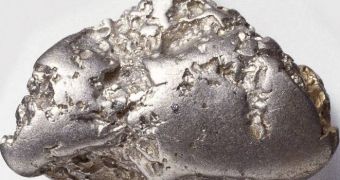In spite of the promising predictions made during the changing of the millennium about hydrogen, which was supposed to fuel the average vehicles (from car to airplane and ship), supply the energy production process, and do all that without posing a threat to the environment, almost a decade later things are still as grim as before. All over the world, from Iceland to the United States, the envisioned hydrogen economy is far from achieving the promised results, in spite of the efforts invested in this regard.
"Fuel cells have been a roller coaster of hype and disillusionment," shares Martin Green from Johnson Matthey, a fuel-cell components manufacturer in the automotive industry, as quoted by New Scientist, "but I am more confident now that the hydrogen economy is going to happen than ever before." Experts place the blame on financial rather than technical issues, with the price for fuel cell products – the foundation for the whole concept – still soaring.
They believe that, once mass production and usage is underway, the technology will become competitive. However, this seems somewhat hard to accomplish, since it relies on expensive materials, such as platinum, being used as catalysts. This translates in an urgent need to change or adapt the technology, a matter whose success yields different opinions. Green is certain that the required amount of 20 grams of platinum required per car can be reduced and even recycled until the technology hits the market, that is less than 10 years from now.
After studying the implications, Armin Reller from Germany's University of Augsburg, a former hydrogen adviser for the Swiss government, is not convinced, though. "Platinum is really scarce, and only produced in five mines around the world," he explains, as he shows that these could not possibly provide the required amount. Thus, in the best case scenario, hydrogen could only represent a partial solution, especially when considering the environmental unfriendliness of its production process.
With all the involved matters being addressed, it only remains to hope that the promised hydrogen power heaven is yet to rise up to the challenge, expectations and promises.

 14 DAY TRIAL //
14 DAY TRIAL //